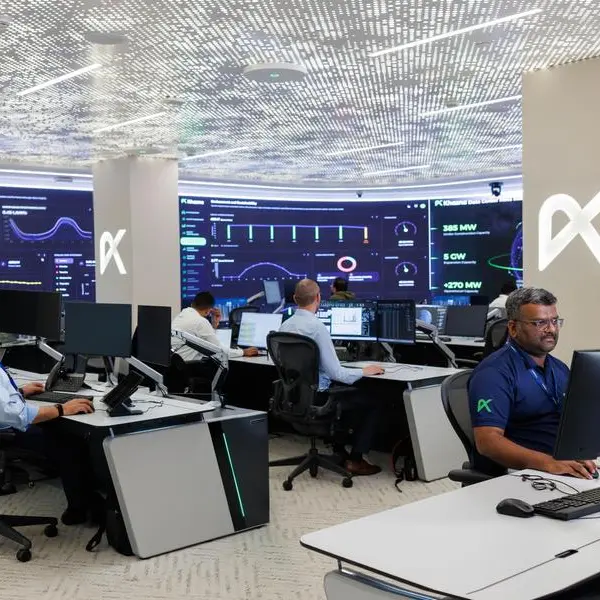PHOTO
Here are several key trends for 2025 that local SMEs and entrepreneurs must be mindful of if they want to capitalise on the opportunities.
Realising the full potential of AI
ChatGPT, Microsoft Copilot, and Google Gemini have proven that the use of artificial intelligence (AI) is no longer the exclusive domain of large corporations, bringing generative AI advantages to all business owners. AI tools are expected to handle more complex tasks to augment human capabilities and offer hyper-personalised products and services.
For example, chatbots are an AI growth area that has seen considerable strides in providing 24/7 customer support, with a multitude of affordable and efficient options available online.
But here’s the rub: due to the boom in AI applications, it is easy to a) become overwhelmed by choice, and b) stagnate during the implementation phase.
For many SMEs, the real challenge AI presents is bridging the skills gap to effectively choose, adopt, and deploy AI solutions. To realise its full potential, there needs to be a skills evolution that focuses on AI literacy.
The challenge of the online economy
E-commerce, fintech, and digital marketplaces will continue to be pivotal growth areas for SMEs. Research released earlier this year by World Wide Worx notes a massive 29% growth increase in local online retail from 2022 to 2023, with predictions to break the R100bn mark by 2026. Furthermore, fulfilment costs are now cheaper than ever, with several courier/package delivery options available.
Seamless omni-channel integration is a key development in this space. Retailers are expected to increasingly blend online and offline experiences, such as allowing customers to shop online and collect in-store or using apps for in-store navigation and deals.
Small businesses that do not embrace digital will miss out on access to wider national (and possibly international) markets, reduced operational costs, and enhanced customer engagement.
That said, the marketing efforts and costs around getting your business noticed online can be burdensome.
Given the rising costs of advertising on digital platforms such as Facebook and Google, the training needed to use these digital tools effectively, and the competition for attention and visibility online, digital marketing could become one of the most challenging parts of running a modern-day SME.
Bridging the informal economy gap
The informal economy contributes approximately 6-10% of South Africa’s GDP and employs about 2.5 million people, according to estimates from Statistics South Africa (Stats SA) and the International Labour Organization (IOL).
It is also true that the informal economy is the sector that can fast-track employment the quickest, dependent on greater integration into the formal economy.
Access to funding remains one of the top challenges faced by all businesses, so the recent approval of the SMMEs and Co-operatives Funding policy by the cabinet comes as good news. With plans to provide different funding instruments to businesses, including those considered to be informal, the eventual results could be highly beneficial.
Furthermore, initiatives such as the Department of Small Business Development’s Informal Micro Enterprises Development Programme, which delivers grants primarily for equipment expansion, can raise the bar if implemented effectively. There is also the Township and Rural Entrepreneurship Programme, which offers financial packages in the form of blended finance.
The government’s Operation Vulindlela, aiming to address the energy crisis, transportation and logistics, and the access to and cost of broadband, should have a knock-on effect and energise the informal economy.
The lower cost of data can play a significant role here, providing informal traders, artisans, and small-scale manufacturers access to online platforms and marketing opportunities.
For established SMEs, there is also the possibility of tapping into the vast informal economy. It’s a complex but lucrative market where cash is still king, so finding the right partners will be key.
Fintech and its role in access to finance
Fintech is set to play a greater role in providing SMEs with access to capital. Not all SME business owners can or want to apply for traditional bank loans.
This is where new fintech solutions offer alternative funding models, including peer-to-peer lending, crowdfunding, and blockchain-enabled financing platforms. Often, these tailored financial products align more closely with the business owner’s needs.
Similarly, SMEs can now integrate financial services for clients directly into their e-commerce platforms through APIs. This trend enables offerings like buy-now-pay-later, instant EFT, instalment plans, and payment via virtual cards—services that were not available a few years ago.
These fintech solutions are evolving the e-commerce landscape to adapt to local needs, helping more clients purchase as seamlessly as possible and avoiding the dreaded abandoned shopping cart.
All rights reserved. © 2022. Bizcommunity.com Provided by SyndiGate Media Inc. (Syndigate.info).
Miguel da Silva




















